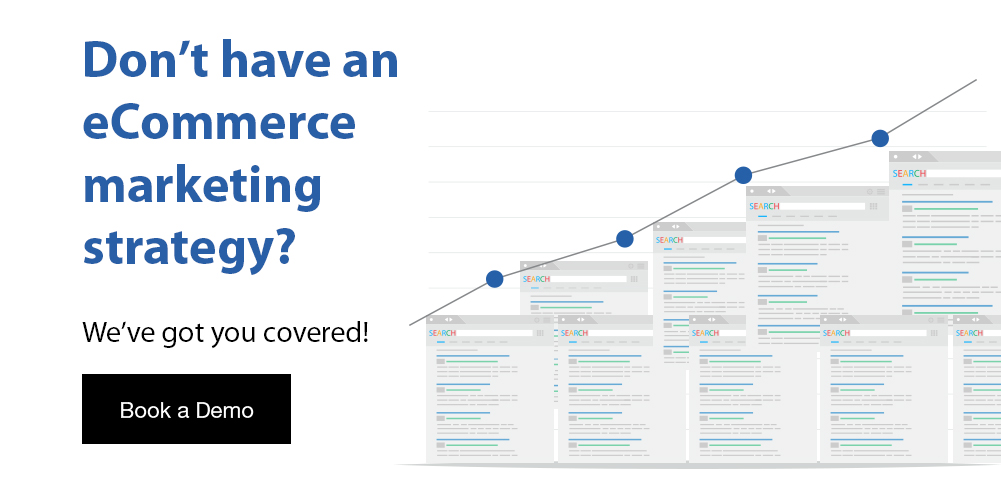Vendor negotiation is an important skillset for business owners. It is a key part of vendor management and is necessary to keep business expenses in check.
Key Takeaway: As an eCommerce business owner, whether in the B2C, D2C, or B2B eCommerce industry, knowing how to negotiate discounts and wholesale prices with a supplier is a skill that will help you stick to budget and save money. Vendor negotiations go beyond convincing the vendor to reduce the price of their wholesale supplies.
It also looks into how businesses can negotiate vendor contracts with the aim of getting favorable terms for both parties. Vendor negotiations can improve the overall vendor management process and experience.
Let’s look at the basics of vendor negotiation, top ways to negotiate with vendors, and how to convince the supplier to reduce the price of wholesale items. We’ll also examine the ultimate supplier negotiation checklist every business owner must have.

What is Vendor Negotiation?
Vendor negotiation is the tactical process of coming to a deal that is advantageous to both your company and its vendors. It often involves numerous discussions with vendors until a mutual agreement is met.
A successful vendor negotiation is usually attributed to having certain skills - we cover some of these skills in this article. You can understand each party's demands through negotiation, which can then help you come up with a deal that works for both parties.
Your vendor contract contains numerous elements that are negotiable, including interest, the length of the contract, and the terms of payment. Consider all of your options when negotiating, both with current vendors and potential suppliers.
Although you might not be able to readily generate new business or control your revenue, you can raise your profit margin each month by lowering your variable costs. This can be accomplished through effective vendor negotiations, which can also improve your ability to evaluate your company's demands and strengthen your supplier relationship management.
Manage and track your multiple vendors and streamline the entire procurement process. Download our free easy-to-use Wholesale Vendor Management Spreadsheet Templates.
When negotiating a vendor contract, keep these three things in mind if you lack experience or confidence:
- You can improve your negotiation skills by learning and using a set of fundamental ideas and procedures.
- Being a great negotiator does not need you to adopt a certain style or method.
- Negotiation is a process that requires more than one meeting.
Top Vendor Negotiation Skills
Developing vendor negotiation skills takes practice and learning. Vendor negotiation skills are required to make the best deals and reach a favorable agreement. You can cultivate these skills with the right vendor management system and using vendor management best practices.
Here are some top vendor negotiation skills every business owner should have:
- Preparation: The first and perhaps most important negotiation skill is preparation. It is imperative to plan and do your homework before engaging in any negotiations or purchasing production supplies from a supplier. You can decide how to continue more intelligently if you are prepared well before time.
- Active Listening: When negotiating, listening is one of the most crucial things you can do. Negotiators frequently become fixated on the outcomes they wish to attain during the procurement process. The chance for success can be hampered if you neglect to give your counterpart a fair voice in the discussions.
- Patience: Since negotiations can be time- and patience-consuming, it's important to go into them with the knowledge that things could not turn out the way you had planned.
- Integrity: Establishing your credibility as a fair, trustworthy, and reliable negotiator—both personally and as a representative of your organization—is essential. Your company's reputation will be enhanced and it will be simpler to negotiate future contracts and transactions as a result of other businesses realizing the value in your consistency as a result of this integrity.
- Strong Problem-Solving Capabilities: The areas of agreement between the parties should be quite simple to reach, making this a perfect spot to begin negotiations. The capacity to think creatively and develop novel solutions to issues, however, is crucial in those situations when there are differences of opinion.
- Emotional Control: While negotiating can be difficult, it's important to keep your composure even when you're upset or worried. It could be harder to deal with your counterpart if they perceive your anxiety.
- Passion and Confidence: The best deals are made by those who are enthusiastic about the things they are negotiating about. You'll be better able to communicate information in a confident and positive way if you actually believe in your business and the goods or services you provide.

6 Vendor Negotiation Strategy
Here are some vendor negotiation strategies for business owners:
- Start With Research
Having the right information at your disposal is important before you begin the vendor negotiation process. Make sure you have all of your facts straight before starting any negotiations.
You'll need to conduct some research for this, including a thorough understanding of your needs and the options that are accessible. Check off the following items to ensure you have access to all the information:
- Detail your needs in a written specification.
- Investigate the available options on the market. Is there just one reliable provider?
- Who will use the good or service?
- Who are the stakeholders? - They will assist you in determining the urgency and significance of the transaction as well as the scope of your budget. Involve all stakeholders in the sourcing process and ensure that they approve the needs definition.
- Establish a return on investment (ROI) for the purchase. After that, you'll be able to clearly see what you want to achieve.
Need help calculating your ROI? Read this blog to learn how to calculate ROI
- Try Effective Communication
Every negotiation begins with interaction and being able to communicate your business needs effectively. When negotiating terms with a vendor, it's essential to be clear about your expectations so that you may both sides can come to an agreement.
By dealing with a single point of contact during negotiations, you can concentrate on developing a rapport that is founded on honesty, openness, and trust. When feasible, speak in person and give the conversation your complete attention.
When communicating, try your best to do it promptly. You can cooperate with the vendor to remove any barriers blocking an agreement once clear and effective communication has been established.
Clear communication goes beyond just what is said to keep a contract moving forward. Timing is also important.
- Do the Background Checks
Knowing your vendors and what they do will help you communicate with them more successfully. Get as much information about the vendor as you can before entering into negotiations.
Here are some checks to perform before your first meeting:
- When did they start their wholesale distribution company?
- Who are their customers?
- What are some of their achievements?
- Does the supplier have a history of being dependable?
- Find out if the business owner will be in the room with you or a sales representative.
- Verify the contact person's history using LinkedIn and other social media sites.
- See what former and present customers have to say about the business, its offerings, and its services by getting in touch with them.
The more information you can gather, the better. You should also look up feedback and reviews about the vendor online.
- Check Market Situation
Asking for a price that is lower than their wholesale cost will end negotiations faster than anything else. In order to fully understand the vendor's product and how it compares to other options on the market, benchmarking is an essential step.
Researching possible wholesale costs is essential if you want to know how much pricing latitude your supplier will have. Since most suppliers try to justify higher pricing with superior quality, you need also be aware of quality variance.
Run the negotiations with several vendors, if at all possible. Starting out, you want to have as many options as you can.
Customer retention is more affordable for most suppliers than customer acquisition. A vendor may be more inclined to lower costs if they fear losing your business. This can be used as leverage.
Compare the warranties and SLAs offered by the vendors as well as their product and service offerings. Make an objectively sound judgment using data by using a score analysis. Depending on the kind of product or service your vendors offer, you can set the standards you need to evaluate them.
Searching for prices online is another method of benchmarking. This method can provide you with a lot of information, but always compare like with like. Establish the unit of measurement so that you may make comparisons that are accurate.
- Understand the Vendor
Determining the vendor's goals is something you should try to do. Is their offer time-sensitive? Will they accept better conditions if you accept the offer before a specific deadline? Do they intend to gradually pull back their service plan? Consider your long-term needs and try to negotiate discounts at this time.
It's likely that you will understand your possible counterpart's desires if you are working collaboratively. Maintain your stance while remaining creatively open. It's possible that the offering's structure is different from what you anticipated, and it might be possible to change it in a way that's favorable to both sides.
- Prepare to Reduce Risk
Negotiations are done in order to get the greatest deal on a good or service. However, avoiding risks is an essential component of the process.
Here are some vendor risk management checklists to put in place:
- Avoid becoming trapped with the wrong choice while selecting a new vendor.
- Keep your IT team or management informed when purchasing a license to prevent problems with integration, security, and software updates.
- Include your legal counsel in the process of procuring agreements to ensure that you have the appropriate contract language and terms in place.
- Ensure that you have the right to cancel the contract if they fail to deliver. There might be more pertinent exit places in various circumstances.
- SLAs, warranties, and KPIs give you the ability to monitor performance in order to accurately judge the level of service or product quality.

Frequently Asked Questions About Vendor Negotiation Strategy
Vendor negotiation is a skill that can benefit business owners at any given time. Let’s answer some frequently asked questions about vendor negotiation.
What are the 4 P’s of Negotiation?
The four P’s of negotiation are:
- Preparation
- Process
- Power perception
- Player’s perspective
What are the Four Types of Pricing?
The four types of pricing are:
- Competitive pricing
- Cost-plus pricing
- Demand pricing
- Markup pricing
What is KPI in Vendor?
KPI are metrics that are set to measure vendor performance. Setting eCommerce KPIs is important since it clarifies what is expected of third parties and assists businesses in defining the connection during the negotiating stage.
Start Strong
Vendors are unlikely to enter into negotiations with a business that has missed a deadline or paid bills late. In a same vein, vendors detest highly intricate or challenging customers.
Making complete and timely payments demonstrates your commitment to vendors. Invoice processing and vendor transaction management are both possible with BlueCart's payment processing software.
It takes effort and thorough research to master the art of vendor negotiation, but it may provide enormous rewards for a start-up company. As you negotiate with vendors over prices, increase your profits and social capital.